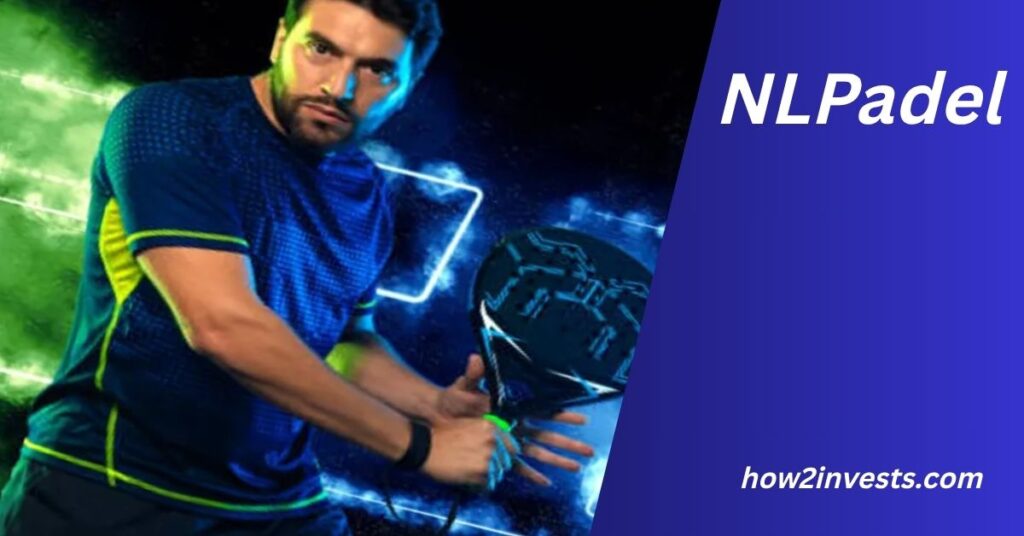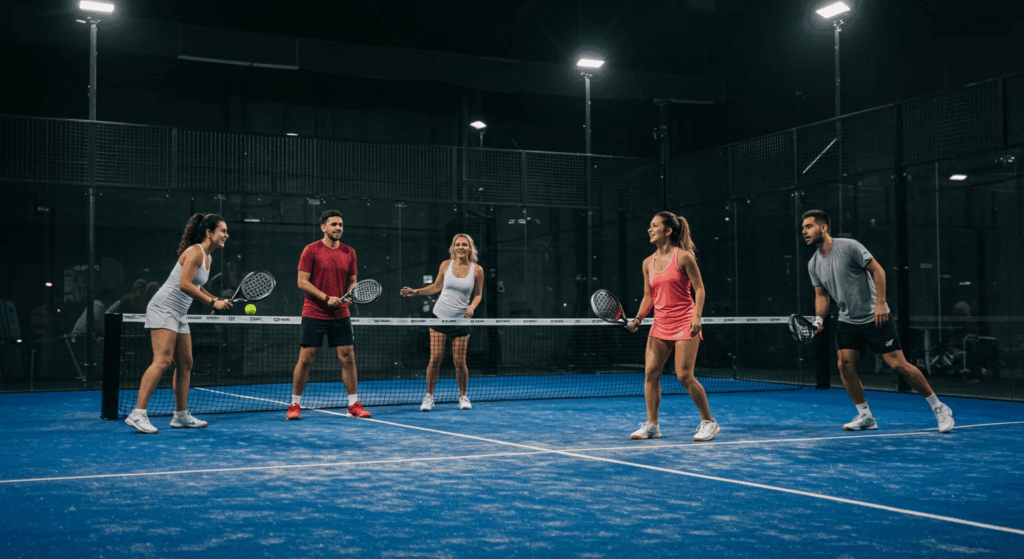NLPadel: Revolutionizing Padel in the Netherlands

Padel, a sport that blends elements of tennis and squash, has been steadily growing in popularity around the world, and one of the countries where it’s gaining significant traction is the Netherlands. This article dives deep into the rise of NLPadel, exploring its origins, the infrastructure around it, and the factors contributing to its rapid development in the Dutch sports scene. Whether you’re a seasoned player, a newcomer, or just curious about the sport, this guide will give you a comprehensive understanding of NLPadel and its impact on the Netherlands’ sporting culture.
What is NLPadel?
At its core, NLPadel refers to the structure and movement of padel in the Netherlands. This includes the rapid expansion of local tournaments, the increasing number of padel clubs, a growing community of enthusiasts, and an emerging network of coaches and trainers dedicated to nurturing the sport. While padel may be a relatively new phenomenon in the Netherlands, its development has been nothing short of spectacular.

In recent years, NLPadel has come to represent more than just a sport; it has become a cultural movement, drawing attention from all sectors of Dutch society, from the sports community to corporate sponsorships. The Netherlands is now home to a vibrant and fast-growing network of clubs and events that are shaping the future of padel in the country.
The Growth of Padel in the Netherlands
While padel was first introduced in Spain in the 1970s, its arrival in the Netherlands took place much later. The Dutch embraced the sport in the early 2000s, with the opening of the first few clubs and courts. However, the sport’s exponential rise in popularity began around 2015, fueled by the opening of more dedicated padel facilities and the growing number of tournaments.
Also Read: Dixkidzoz: The Rise of Unique Digital Identities Shaping Gaming, Branding, and Online Culture
Today, the Netherlands boasts hundreds of padel courts spread across various clubs, and the sport is not only seen as a recreational activity but also as a competitive pursuit, with many athletes dedicating themselves to the sport at a professional level.
Key Elements of the NLPadel Movement
1. Local Tournaments and Competitions
One of the most vital aspects of NLPadel is the emergence of local tournaments and competitions. These tournaments are held at various levels, from amateur matches to professional competitions, offering players the chance to test their skills and compete in a community-driven environment. The Netherlands Padel Federation (NPF) organizes national and regional tournaments, contributing to the development of the sport across the country.
The surge in local competitions has led to increased media coverage, attracting spectators who may have never been exposed to the sport before. This added exposure has been essential in growing the popularity of padel, transforming it from a niche sport to a mainstream attraction.
2. Padel Clubs and Infrastructure
The Netherlands has witnessed a boom in the establishment of padel clubs. These clubs offer state-of-the-art facilities and regularly host events for players of all skill levels. From small, local clubs to large multi-sport complexes with dedicated padel courts, these spaces are becoming key players in the NLPadel movement.
Many of the clubs offer memberships, which include access to exclusive courts, coaching programs, and social events. These clubs are not just venues for playing padel—they are community hubs where players can socialize, learn, and grow in the sport.
3. Padel Coaching and Development Programs
Coaching plays a central role in the NLPadel ecosystem. As the sport continues to grow, there is an increasing demand for professional coaches who can nurture talent and help players elevate their game. Coaching programs in the Netherlands cater to all ages and skill levels, from beginners to elite players. These programs focus on developing technique, strategy, and mental resilience.
With professional coaches and training programs, the country is quickly producing talented padel players who are making their mark internationally. The Dutch government and the Dutch Padel Association have also invested in creating pathways for young players to enter the sport, helping to secure its future.
4. Sponsorships and Professionalization of the Sport
As NLPadel has gained popularity, it has attracted the attention of various brands and corporations. Sponsorship deals with sports equipment companies, local businesses, and even large multinational corporations have contributed to the growth of the sport, both in terms of financial backing and visibility. This financial support helps to fund the growth of the sport at all levels—from grassroots initiatives to high-profile professional tournaments.
Also Read: Tecnoregio News: The Ultimate Source for Cutting-Edge Tech Updates
The increase in sponsorships has also played a role in the professionalization of the sport. More professional padel players are emerging from the Netherlands, with some even competing on the international circuit.
Challenges Facing NLPadel
Despite the rapid growth of padel in the Netherlands, there are still some challenges that need to be addressed in the development of NLPadel. The most significant challenges include:
1. Limited Court Availability
As the popularity of padel continues to soar, many clubs are struggling to keep up with the demand for courts. While new courts are being built to accommodate the influx of players, there are still long waiting lists at some facilities, especially in urban areas.
2. Lack of Public Awareness
While padel is growing in popularity, it is still relatively unknown compared to more traditional sports like football or tennis. More efforts are needed to raise awareness of the sport and highlight its accessibility and inclusivity.
3. Accessibility to Professional Training
Although coaching programs are plentiful, there remains a gap in access to high-level professional coaching for players who aspire to reach the top. More investment in elite training facilities and programs is required to ensure that talented players are not held back by a lack of resources.
The Future of NLPadel
Looking ahead, the future of NLPadel appears bright. With increasing investment from both the private and public sectors, the sport is poised to continue its upward trajectory. The Netherlands could soon become one of Europe’s leading padel nations, attracting top-tier tournaments and global recognition.
Efforts are also being made to integrate padel into school curriculums, making it easier for younger generations to pick up the sport and fall in love with it early. This grassroots approach will ensure that the next generation of padel players is ready to take the sport to new heights.
Also Read: Programgeeks. net: Your Ultimate Guide to Coding, Software Reviews, and Programming Resources
FAQs About NLPadel
What is the best way to get started with padel in the Netherlands?
To get started, visit a local padel club and inquire about beginner programs or open sessions. Many clubs offer rental equipment and coaching for newcomers.
Is padel suitable for all age groups?
Yes, padel is a versatile sport that can be enjoyed by people of all ages and fitness levels. The sport’s low-impact nature makes it especially appealing to older players or those with joint issues.
Are there professional padel leagues in the Netherlands?
Yes, the Netherlands has its own competitive padel circuit, with opportunities for both amateur and professional players to compete. The Dutch Padel Federation organizes national competitions throughout the year.
Can I watch live padel tournaments in the Netherlands?
Absolutely! Many clubs and the Dutch Padel Federation host live events and tournaments. These are a great way to see top-level players in action.
How can I improve my padel skills?
To improve your padel skills, it’s recommended to participate in regular training sessions, practice with experienced players, and seek guidance from professional coaches.
Conclusion
The rise of NLPadel is transforming the Dutch sporting landscape. With a growing network of clubs, tournaments, and passionate players, padel is well on its way to becoming one of the country’s most popular sports. As the sport continues to evolve, the Netherlands will play a significant role in shaping the future of padel, both domestically and internationally. Whether you’re an aspiring professional or just looking to enjoy the sport recreationally, NLPadel offers something for everyone.




